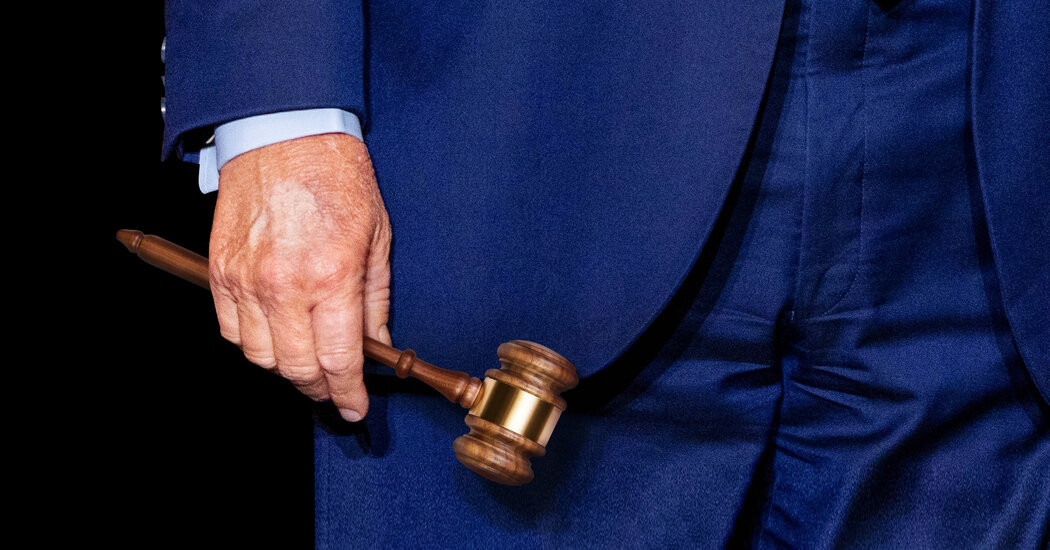

As a candidate for president once again, Donald Trump could not be clearer about his plans to use the Justice Department to seek revenge against his enemies. During his 2016 campaign, his rallies exploded with the chant “Lock Her Up.” Now Trump talks about ordering prosecutions against so many people that his threats have become commonplace. “WHEN I WIN, those people that CHEATED will be prosecuted to the fullest extent of the Law, which will include long term prison sentences,” Trump posted online in September about election administrators, among others. It’s just one example in a long list that extends to President Biden and his family, Vice President Kamala Harris, members of Congress, prosecutors, judges and former F.B.I., Department of Justice and national-security officials.
Trump, of course, also says that he’s currently the victim of political prosecution by the Biden administration. Jack Smith, the special counsel appointed by Attorney General Merrick Garland, charged Trump in Florida for refusing to return classified documents and in Washington for trying to overturn the 2020 election. State prosecutors, both Democrats, brought election-related charges in Georgia and convicted Trump in New York of a hush-money scheme to influence the 2016 election. In his telling, all the cases are witch hunts by “Politicized ‘Persecutors.’” Retorting to Harris at their debate in September, Trump said: “They talk about democracy: I’m a threat to democracy. They’re the threat to democracy — with the fake Russia Russia Russia investigation that went nowhere.”
But there is a fundamental difference between the investigations Trump threatens and the ones he’s now subject to. There is no known evidence that Biden instigated these investigations or has tried to influence their outcome. Garland has given Smith authority over how to proceed in the investigations of Trump — and also appointed different special counsels to investigate Hunter Biden and President Biden’s own mishandling of classified documents.
Still, there’s a tension in our system, which Trump is forcing the country to confront. The Justice Department sits inside the executive branch. The attorney general, the director of the F.B.I. and other political appointees at the department all report up to, and can be fired by, the president. The only way to wall off presidents from interfering with criminal investigations is for them to impose such a limit on themselves.
For the last half century, presidents saw a clear political benefit in restraint. No one wanted to be the next Richard Nixon. He became the only president ever forced to resign after he was caught interfering in the F.B.I.’s investigation of the 1972 burglary of the Democratic National Committee’s headquarters — which his own former attorney general helped plan and then cover up. In the aftermath of the Watergate scandal, the Justice Department imposed new rules to prevent “pressure from any source that is intended to influence our legal judgment,” Attorney General Griffin Bell said in 1978. Crucially, this included partisan directives from the White House. In the presidential administrations that followed, this rule was reaffirmed and largely followed, the evidence suggests.